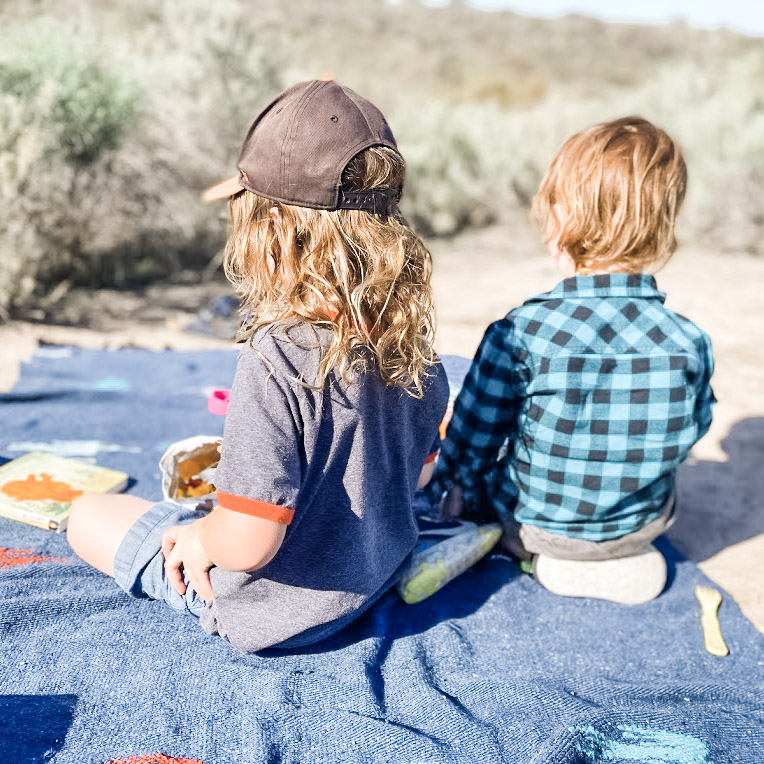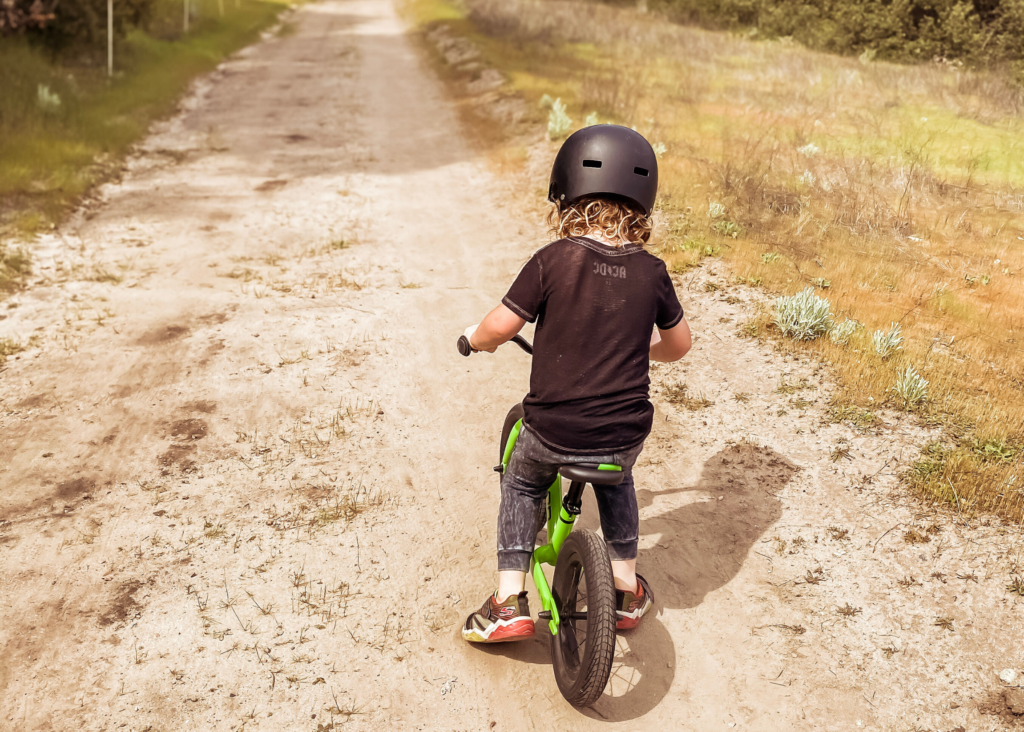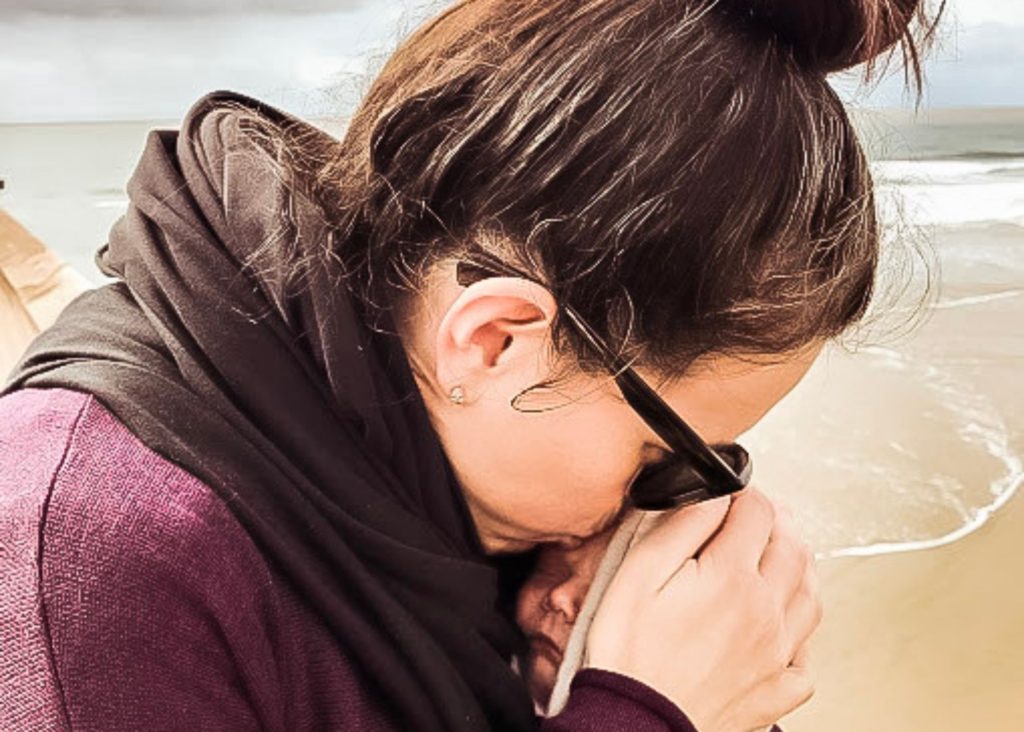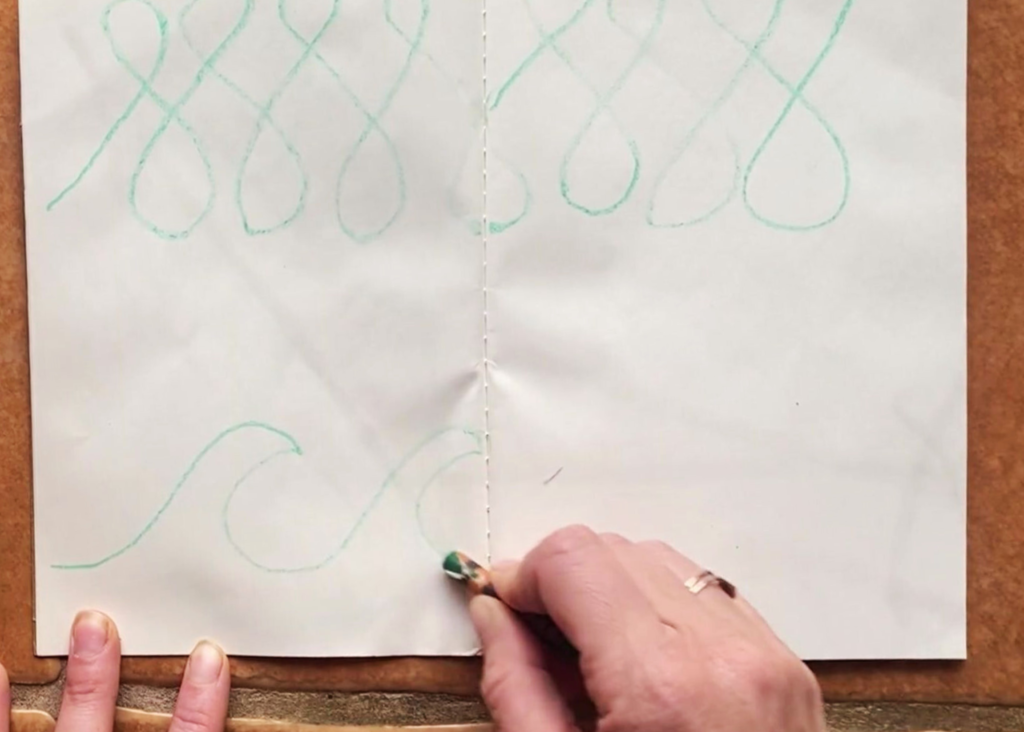Mindful Motherhood: A Key to Peaceful Parenting
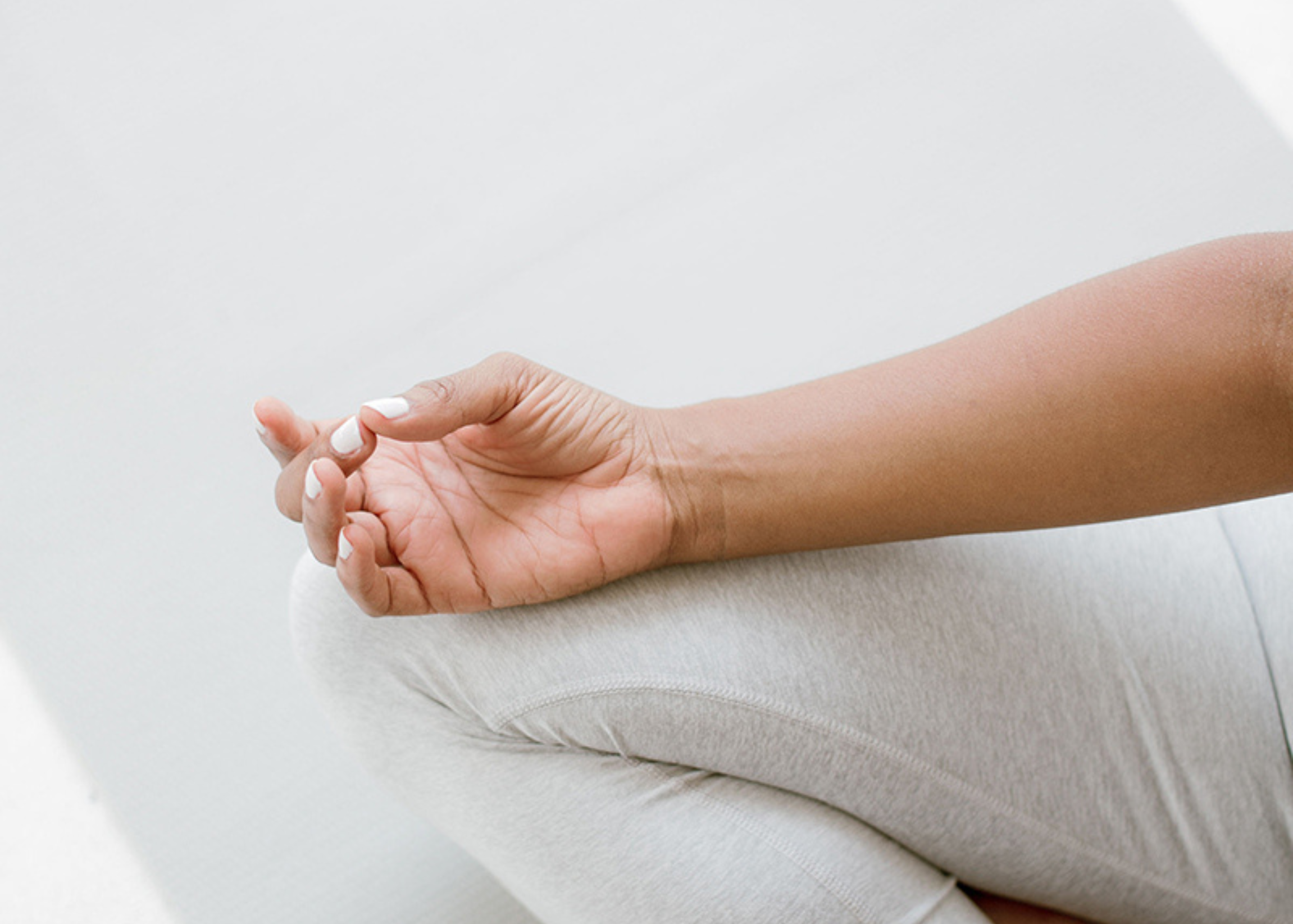
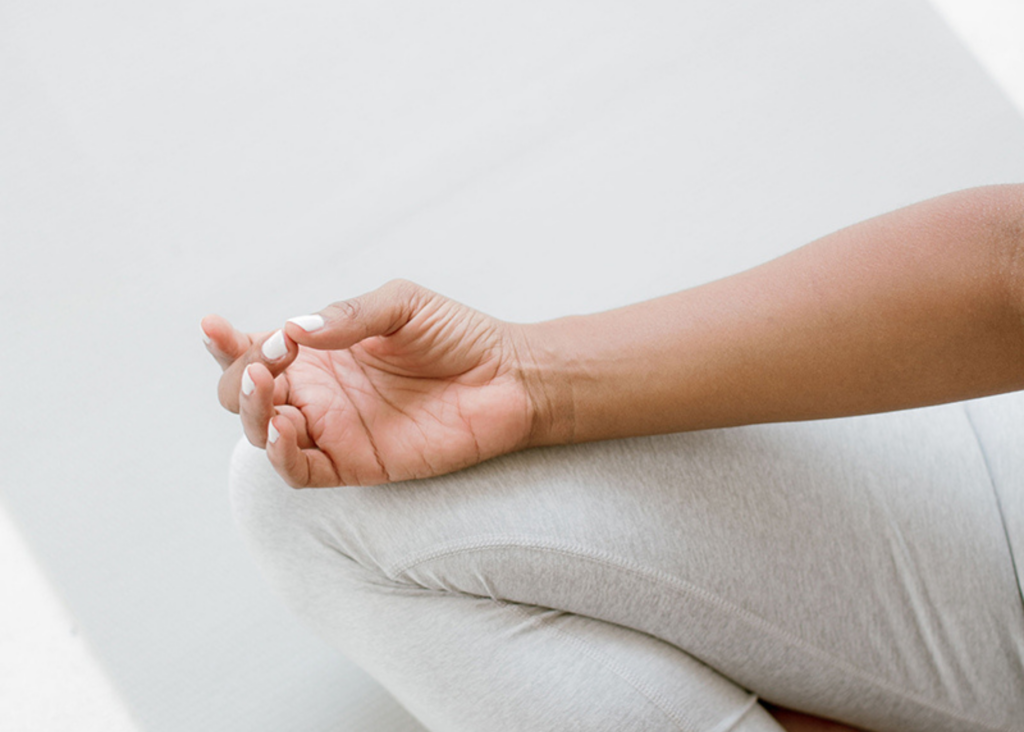
Motherhood is overwhelming.
We all know it. Yes, of course, there are those moments when we catch our little ones giggling over a secret together or when they read to us for the first time. Those incredible moments that make it all worthwhile. But in between those moments… exhaustion, overwhelm, frustration, impatience.
We’re juggling. And finding even just a bit of peace can feel impossible.
For me, mindfulness is the key to surviving the chaos. Without my mindfulness practice, I don’t get through a single day without yelling, without infinite distractions, and likely without losing my mind.
–
In my twenties, I didn’t realize near constant, swirling thoughts, replaying conversations, and relitigating arguments wasn’t ideal until it was pointed out to me that not everyone did this. I had no idea my thoughts aren’t fact and that I had a choice about what I allowed in my head. My thoughts were beyond my control, or at least that’s what I thought.
A therapist introduced me to mindfulness generally and meditation specifically. I did not take to either quickly or well. I “couldn’t” meditate. I was bored. And mindfulness? Honestly, I didn’t really understand the value of being present in the world.
Eventually though, I developed a near-daily meditation practice. And it gave me a bit of peace that followed me into motherhood.
Then, I had our second baby. And I almost immediately lost my meditation practice. During that postpartum period, I could not get out of my own head. I almost always felt frustrated, angry, impatient, or worse. I found myself yelling at my toddler. It was an incredibly dark time and my heart breaks for my older son who was still just a baby himself and for that version of me, who was drowning.
About three months in, I took a step back, asked for help, and among other things, got back to my meditation practice. Within about a week, things improved. I found a bit of gratitude, recognized my feelings as temporary, and started to catch my racing, recurring negative thoughts before they could turn into overwhelming emotions (at least most of the time).
Mindfulness quite literally saved my motherhood experience.
Understanding Mindfulness
So, what exactly is mindfulness?
At its core, mindfulness is about being present in the moment, fully engaged with your current experience without judgment. It is being intentional about what you are doing and aware of your surroundings. It’s about tuning into your senses and being
Mindfulness is focusing your attention on the moment, tuning into your senses and sensations, and being aware of your thoughts and feelings as they come and go, all with an attitude of acceptance.
It is sipping a cup of tea and noticing the smell, the warmth of the cup in your hands, seeing the steam rise, and enjoying the taste and sensation as you swallow. Being aware of the experience of drinking the tea, rather than mentally running through your entire to-do list and worries about the future.
This isn’t to say that tea time isn’t a great time to think about what you need to do tomorrow and review your day. It is. It is all but impossible to be completely present and mindful all the time. There is some value in considering the future and reviewing the past.
Benefits of Mindfulness
People have been meditating for thousands of years (why not take a little wisdom from the ancients?) Likely, mindfulness as something to cultivate didn’t become part of our culture until mindlessness seeped in. Mindfulness in our ancestors was just a way of being.
Mindfulness has become an increasingly popular way of improving overall wellbeing, and rightfully so. Research shows it’s effective. Mindfulness meditation can change our brain and biology. Mindfulness has been shown to:
↠ Decrease depression
↠ Reduce stress and anxiety (even when you’ve stepped on another Lego in the middle of the night)
↠ Improve memory
↠ Help us think more clearly and improve focus (even after an all-nighter with a sick kid)
↠ Increase focus
↠ Improve relationships
↠ Relieve pain
↠ Improve symptoms and outcome for long-term chronic illness
For moms, mindfulness can help us increase our emotional resilience. It can help us feel more regulated (we could all use a little more regulation when our little ones become dysregulated)
It helps mothers connect more deeply with our children and helps us foster a nurturing environment. Mindfulness can help us feel more patient, less reactive and more in tune with our little ones. Plus, it’s such a great example for our kiddos.
Mindfulness isn’t…
When I first started practicing meditation, I thought that it meant I had to completely clear my head of any and all thoughts or feelings. I needed to be a blank slate. Impossible.
I thought I was “bad at meditation” and decided I’d never be able to do it. I also thought it meant I’d be calm all the time, unruffled by day-to-day annoyances.
But mindfulness isn’t about being “zen” all the time or about having a mind free of thoughts. Rather, it is about noticing our thoughts and feelings, trying not to judge them, and allowing them to pass without allowing ourselves to engage with them or go down a rabbit hole of what ifs or then whats.
Mindful Motherhood
Mindfulness in motherhood is attempting to approach motherhood intentionally – with awareness and compassion.
It’s about working to be present with our children, wholeheartedly listening to them, making eye contact, being with them. Acknowledging their feelings (like we would our own) without judgment or rushing in to fix everything. It’s about listening with empathy and holding space for them when they are upset.
Sometimes, mindful motherhood is about being silent and near. Being a physical comfort for our little ones when words won’t do.
It’s about handling our own big emotions and mistakes with self-compassion and working to eliminate self-judgment.
Mindful motherhood means moving towards patience and working to respond rather than react. It means creating more thoughtful interactions with our little ones.
It’s about noticing and appreciating every day moments, recognizing and being aware of the micro moments that build a life.
It is about being alert and awake to ourselves, our environment, our children.
Simple Mindfulness Practices
Mindfulness does not need to be an hours-long practice of sitting crosslegged in a quiet room. Just a few slow, deep breaths can bring you back into the moment (or out of frustration, anger). A few minutes of mindful observation (watching your little ones play or talk to themselves – my favorite!) can ground you.
Starting a mindfulness practice doesn’t have to be overwhelming and most certainly shouldn’t add one more thing to your list. If anything, it should help remove things and give you more time in your day.
How to start a mindfulness practice
Begin with a short practice, maybe 3 minutes of mindful breathing, sitting in stillness, or a brief body scan before you go to bed.
Try incorporating it into your life by stacking your new practice onto something you’re already doing. I meditate and do an energizing breathwork practice first thing in the morning before I get out of bed. It takes 15 minutes and makes an enormous difference in my day.
I also like setting up mindfulness anchors or moments throughout the day that remind you to take a breath and reset or get grounded. You can set up a reminder around transitions or anything else that happens daily to take a few seconds to get back to the moment.
I use school pickup to reset and say a few affirmations about moving into being a peaceful and present mother. We do “rose & thorn” (or highs and lows) every night at dinner to connect and reflect on our day. And we do gratitudes before bed.
Like most things, the magic is in the consistency of it all (I know, so boring) so find something short and simple that works for you.
A few simple practices:
↠ Mindful breathing: Take five deep breaths (even one will work) when you feel overwhelmed. Inhale peace… exhale tension.
↠ Before bed, think of three or four things you’re grateful for. I like trying to remember tiny moments that made me smile, like hearing my big kid’s plans to wake his brother up the moment I leave the room after bedtime stories so they could start playing some more.
↠ Morning intention: Set an intention each morning—something simple like Today I’ll embrace patience.
What’s Keeping Us from Mindfulness in Motherhood?
When I first started meditating, the feeling of “I’m not good at this” and boredom kept me from making it a habit. I wanted to be able to perfectly clear my mind.
But perfection isn’t needed (or even close to expected!). We need to be gentle with ourselves when starting anything. It’s not going to go as planned.
My morning meditation gets interrupted more often than it doesn’t. My little ones know I need it, know what I’m doing when they come in and I have my headphones on and my eyes closed. My six-year-old likes to do my breathwork with me sometimes (it’s ridiculously sweet). Some days, these moments of “peace” feel anything but peaceful. But, I keep doing it.
I also will have days when I forgot it was garbage day and have to jump out of bed to put out the trash and then a little one is sick or the dog has to pee…. And a few days go by and I’m just like that, out of the habit. It happens. We just need to embrace the imperfection of it all and jump back in.
We’re always going to have stress, distractions, time demands. All of this makes it more difficult to stay present. In time, mindfulness becomes more intuitive, less of an effort.
–
When I think about the way I want my little ones to remember me, I want it to be about special moments we shared. I want them to remember I was there and that I listened and supported them. I don’t want them to remember a distracted, impatient woman who needed them to repeat every question because I was in my own world.
Intentionally cultivating a mindful motherhood is the best way for me to give them these memories. It’s more than reducing stress, it’s about creating an environment of empathy, love, and connection.
I’d love to hear your reasons for bringing mindfulness to motherhood and if you’ve tried any of these practices. Share your experiences, thoughts, ideas or anything at all in the comments below.
And if you want more peace, slow, and intentional motherhood in your life, join my mailing list here. I’ll send you tips and insights to support you on embracing mindfulness as a mother.
And, if you’d like to explore your mindfulness practice further, take a look at A Year of Mindfulness.

